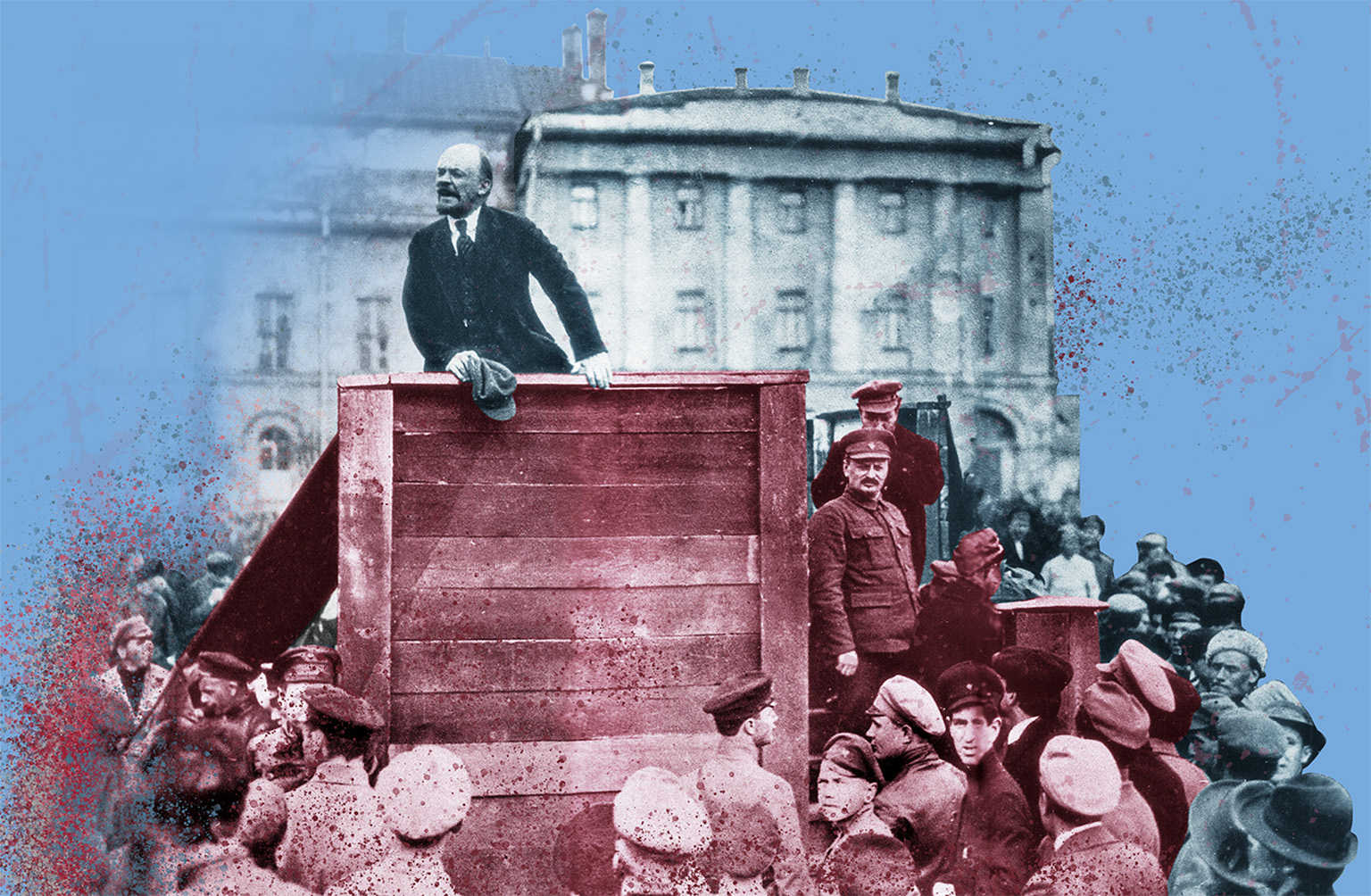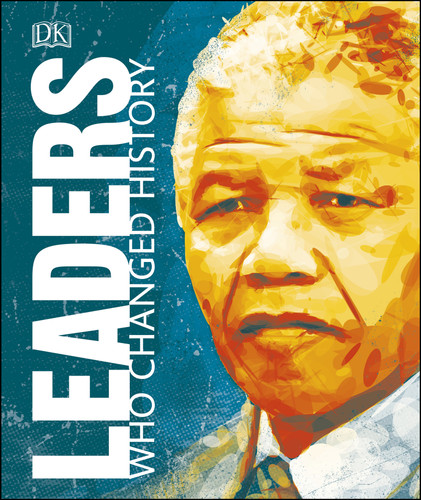
VLADIMIR LENIN
1870–1924
A Russian communist, revolutionary, and political theorist heavily influenced by Marxist principles, Vladimir Lenin orchestrated the Russian Revolution that overthrew the Russian czarist regime and established the world’s first single-party communist state.
Vladimir Ilyich Ulyanov (he adopted the name Lenin in 1901) was born on April 22, 1870, in the town of Simbirsk (now Ulyanovsk), east of Moscow. His family were educated, conservative monarchists. Lenin studied law at Kazan University, but was drawn into student protests, arrested, expelled, and exiled to the family estate. (He later completed his studies as an external student.) Lenin’s mother persuaded the authorities to let him return to the city of Kazan. There, he read Karl Marx’s Das Kapital for the first time, sparking his long-term interest in Marxism and his career as a revolutionary activist. His consequent political activities led to him being exiled to Siberia for three years, but he still corresponded with Russian revolutionaries.
Sparking a revolution

Lenin prepared for a people’s revolution in Russia that would oust the czarist regime. Early in 1900, he joined the Russian Social Democratic Labour Party (RSDLP), and then in July he left for Europe, where he continued to study Marx and Friedrich Engels and met Leon Trotsky. He became head of the RSDLP, but at a conference in London in 1903, the party split—Lenin’s section were the Majoritarians (bol-shevki in Russian, hence Bolshevik).
In response to a wave of uprisings after Russia’s defeat in the Russo-Japanese War (1904–1905), Czar Nicholas II promised the people a series of reforms. Returning to Russia, where workers were striking and people were starving, Lenin advocated armed insurrection and revolution, before leaving for Europe to canvas support. By February 1917, Russia was severely weakened by its military involvement in World War I, and riots broke out in Petrograd (the capital, St. Petersburg, had been renamed in 1914). Widespread unrest followed, and in March, the czar, afraid for his life, abdicated, and a Provisional Government took his place. However, Lenin and the Petrograd Soviet of Workers’ and Soldiers’ Deputies—a growing city council with Bolshevik members—regarded the Provisional Government as incompetent and not truly representative of the people.
In April, Russia’s enemy, Germany, facilitated Lenin’s return to Russia, where he encouraged demonstrations. As a result, many Bolshevik leaders were arrested, and Lenin fled to Finland. In August 1917, the pro-czarist General Lavr Kornilov led a revolt against the Provisional Government, who turned to the popular Bolsheviks for support.
Final push for change
Lenin returned to Russia in October, renewing calls for a revolution, and led the Bolshevik army—the Red Guard—to storm the Winter Palace and remove the Provisional Government. Reinforcing his hold on Russia, Lenin dissolved the elected government and implemented a ban on all political opposition.
From 1918–1921, the Bolshevik Red and the Czarist White armies fought in a bloody civil war. In 1922, when Lenin emerged victorious from the conflict, he took control of a vast single-party communist state, stretching from Europe to the Pacific. Two years later, he died of a brain hemorrhage.
“ We shall not achieve socialism without a struggle. But we are ready to fight. We have started it and we shall finish it …”
Vladimir Lenin, 1918

Lenin demanded total support. Trotsky was stood next to him when this photograph was taken in 1920, but was airbrushed out after falling from grace.
CZAR NICHOLAS II
The last emperor of Russia, Nikolai Aleksandrovich Romanov (1868–1918), was also known as St. Nicholas by the Russian Orthodox church.
Nineteenth-century Russia was one of the world’s most powerful empires. The czars (emperors) had absolute authority over land, wealth, laws, and the church. Czar Nicholas II reigned from 1894, but costly wars and class divisions led to widespread unrest. The czar lived in luxury while his people starved. The economy and the Imperial Army collapsed, and he was forced to abdicate in 1917. The entire royal family was executed in 1918.
MILESTONES
Advocates uprising
Heads militaristic faction of Russian Marxist party in London, 1903; party splits with his section as majority.
Socialist revolution
Ousts the Provisional Government, 1917; Russian Socialist Federative Soviet Republic is born.
social reform
Issues a series of decrees banning many opposition newspapers and ownership of private property, 1917.
leads Civil war
Guides Red Army to victory in Russian Civil War, 1917–21; millions of civilians die during conflict.
USSR leader
Becomes first premier of the Communist Union of Soviet Socialist Republics (USSR), December 1922.
